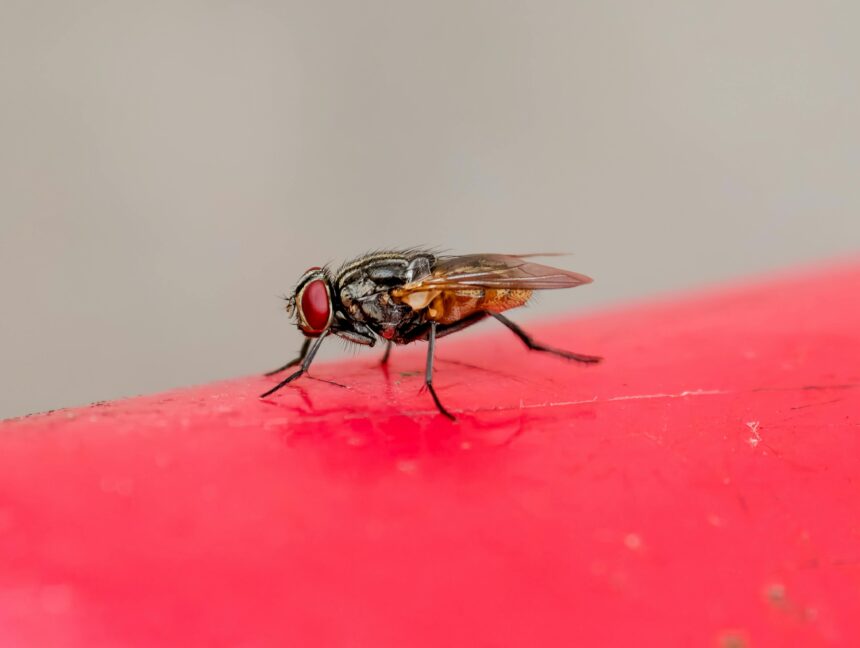Hospitals are supposed to be places of healing, but a recent study discovered an unexpected hazard lurking within its walls: houseflies. Researchers at the Ineos Oxford Institute for Antimicrobial Research discovered that these seemingly harmless insects may be playing a significant role in the spread of drug-resistant bacteria in Nigerian hospitals.
The Hidden Danger of Houseflies
Flies are known for carrying diseases. They flourish in filthy conditions, feasting on garbage and decaying debris before landing on food, medical equipment, and even patients. While their propensity to spread infections is well known, recent study has discovered something even more concerning: these flies are carrying bacteria resistant to critical medications. According to the study, flies taken from hospital wards in Nigeria were shown to contain pathogens resistant to last-resort medications. These include carbapenems and cephalosporins, which are essential for treating serious infections when other antibiotics have failed.
How do Flies Spread Drug-Resistant Bacteria?
Flies have no chewing mouthparts, therefore they feed by regurgitating digestive enzymes onto surfaces, which break down food and other organic substances before sucking it up. During this procedure, bacteria can be easily transferred from one location to another. Here’s how they help spread drug-resistant illnesses in hospitals:
- Contaminated Surfaces: Flies fall on open wounds, medical equipment, and hospital beds, transferring bacteria that could infect vulnerable people.
- Food and Water Contamination: If a fly carrying drug-resistant bacteria lands on food, it might introduce potentially hazardous germs into the patient’s diet.
- Skin touch: Patients with compromised immune systems are particularly vulnerable when flies come into close touch with their wounds or open sores.
The Increasing Threat of Antibiotic Resistance
Antibiotic resistance is one of the most serious concerns in global healthcare. When bacteria develop resistance to frequently used antibiotics, infections become more difficult to treat, resulting in longer illnesses, higher medical expenses, and higher fatality rates. In impoverished nations such as Nigeria, where access to advanced treatment is restricted, drug-resistant germs in hospitals pose a severe public health danger.
What can be done to mitigate this threat?
While flies may appear to be small pests, their importance in disease transmission should not be overlooked. Hospitals and healthcare facilities must take aggressive measures to reduce their presence.
- Improved Sanitation – Keeping hospital facilities clean and waste-free decreases the breeding grounds for flies. Proper trash disposal is critical.
- Stricter Infection Control Measures – Hospitals should establish stringent cleaning processes to sanitize surfaces and medical equipment on a regular basis.
- Sealed Food Storage – Keeping patient meals and medical supplies covered and stored properly can help prevent contamination.
- Use of Fly Traps and Screens – Placing insect screens on windows and doors can help keep flies out of hospital rooms.
In conclusion, flies may appear small, but their potential to transport and transmit drug-resistant bacteria in hospitals is an increasing worry. As antibiotic resistance continues to threaten global health, addressing all potential sources of infection, including flies, is critical. Hospitals may reduce this neglected hazard and provide safer conditions for patients by improving sanitation, implementing tighter hygiene standards, and raising awareness.


